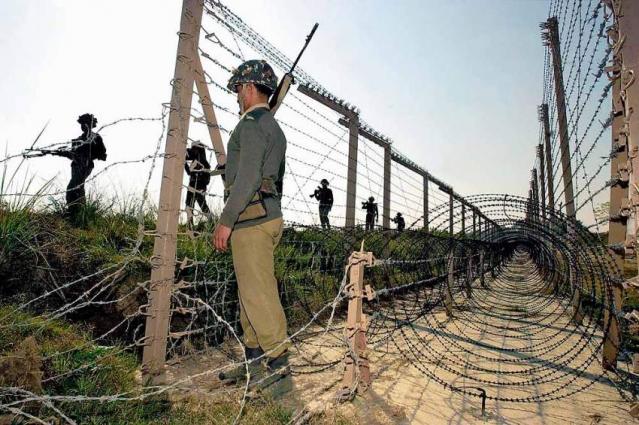
US Intel Community Warns Of Risk Of Escalation In Pakistan-India Tension
Giving their assessments of worldwide threats before Senate's Armed Services Committee, heads of US Defense Intelligence Agency (DIA) and Director of National Intelligence noted continued violence along the Line of Control (LoC) and risk it posed to stability in the region in the wake of tension between the two nuclear-armed neighbors.
"Continued exchange of heavy fire between Indian and Pakistani forces along the Line of Control poses a risk of inadvertent or gradual escalation of hostilities," Robert Ashley, Lieutenant General, U.S.
Army Director, DIA, said. Daniel R Coats, the Director of National Intelligence made a similar assessment saying that relations between Pakistan and India were likely to remain tense, with continued violence on the LoC and the risk of escalation if there was another high-profile terrorist attack in India or an uptick in violence on the LoC.
He also said that Pakistan continued to produce nuclear weapons and develop new types of nuclear weapons, including short-range tactical weapons, sea-based cruise missiles, air-launched cruise missiles, and longer-range ballistic missiles.
"These new types of nuclear weapons will introduce new risks for escalation dynamics and security in the region," he observed. General Ashley said that India continued to modernize its military as it sought a global power status and perceived its strategic forces as necessary elements to achieve that goal.
The General said that India put its first domestically built nuclear submarine, the INS Arihant, into service, and is set to take delivery of its second nuclear submarine, the INS Arighat, in 2018.
On Pakistan's counter-terrorism efforts, Gen. Ashley said that Islamabad was likely to proceed with its counterinsurgency operations and border management efforts along its western border while sustaining counterterrorism and paramilitary operations throughout the country.
"These efforts have had some success in reducing violence from militant, sectarian, terrorist, and separatist groups, but Pakistan will look to the United States and the Afghan government for support against anti-Pakistan fighters in Afghanistan," he added.
Gen. Ashley also noted increase in its nuclear arsenal by Pakistan by developing tactical nuclear weapons and new ballistic missile systems. He said that in January 2017, Pakistan conducted the first test launch of its nuclear-capable Ababeel ballistic missile, demonstrating South Asia's first MIRV payload, and in early July, Pakistan demonstrated an expanded-range Nasr CRBM.
Both the intelligence chiefs also spoke about India-China tension, saying that the lengthy standoff between the forces of the two countries along the Bhutan-China border heightened tension and prompted both sides to increase their forces near the Line of Actual Control.
On threats to the United States, Mr. Coats identified Russia, China, Iran and North Korea countries which will pose the greatest cyber threats during the next year. In addition, he said that non-state actors would continue to use cyber operations for financial crime and to enable propaganda and messaging.
"The use of cyber attacks as a foreign policy tool outside of military conflict has been mostly limited to sporadic lower-level attacks," he said while adding that Russia, Iran and North Korea were testing more aggressive cyber attacks that posed growing threats to the United States and US partners.
No comments:
Post a Comment